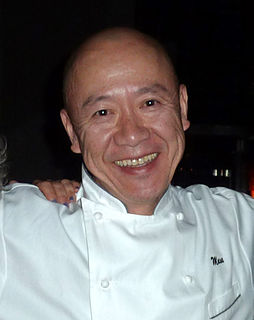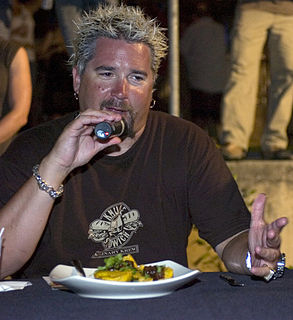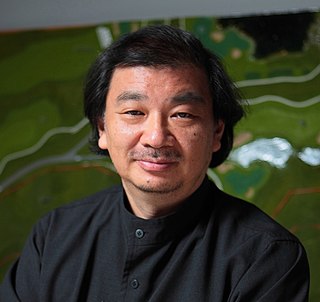A Quote by David Sax
Think of the sushi trend that started in the '80s. It was as much about the Nintendo entertainment system in your living room as it was about the availability of good-quality raw fish. The Japanese food trend rose as the world of Japanese business and culture was becoming a bigger part of American life.
Related Quotes
My job the same as carpenter. What kind of house you want to build? What kind of food you want to make? You think your ingredients, your structure. Simple. [Other] Japanese restaurants … mix in some other style of food and call it influence, right? I don't like that. … In Japanese sushi restaurants, a lot of sushi chefs talk too much. 'This fish from there,' 'This very expensive.' Same thing, start singing. And a lot have that fish case in front of them, cannot see what chef do. I'm not going to hide anything, right?
When you're a teenager, everything seems like the end of the world, and I don't think that's necessarily a silly thing. You're waking up and becoming aware that the world has problems and those problems affect you, whereas when you're young they don't seem to affect you that much even if you're aware of them. This dystopian trend picks up on that little part of your life where everything feels really extreme and it honors that part of your life and says, "Yeah. It is the end of the world. Look at it."
They didn't incarcerate the Japanese-Americans in Hawaii. That's the place that was bombed. But the Japanese-American population was about 45 percent of the island of Hawaii. And if they extracted those Japanese-Americans, the economy would have collapsed. But on the mainland, we were thinly spread out up and down the West Coast.
New York allows you to go deeper into the person you want to be. You're able to explore whatever your specific interests might be. You can eat good Japanese food if you want to eat good Japanese food. You can go and see your favorite author reading, and you can still listen to Radio Ulster on the internet as you have your breakfast. I love that.
I recently wrote a piece on comics in architecture - I was talking about the three kinds of comics I pay attention to: the Franco-Belgian, the Japanese manga, and the American comics. I started thinking about the relationship between Japanese manga and Japanese architecture, or Franco-Belgian bande dessinée versus Franco-Belgian architecture, it began to make sense; there are parallels to the modes of operations and the cultures they belong to. If I didn't force myself to write, I would have no forum to clarify these thoughts. Writing is really helpful.
































